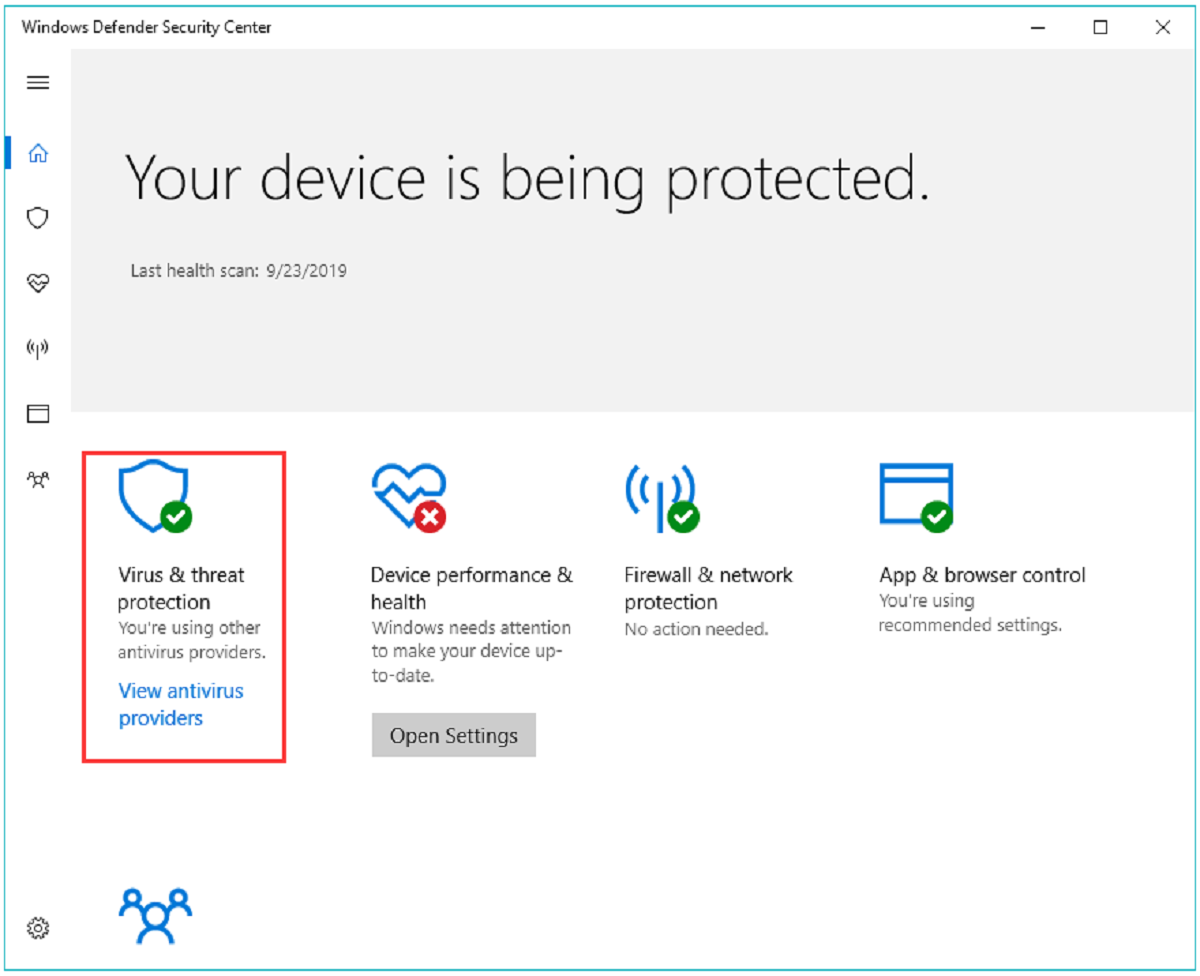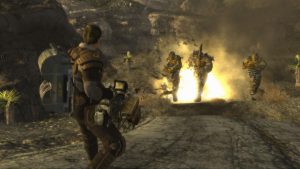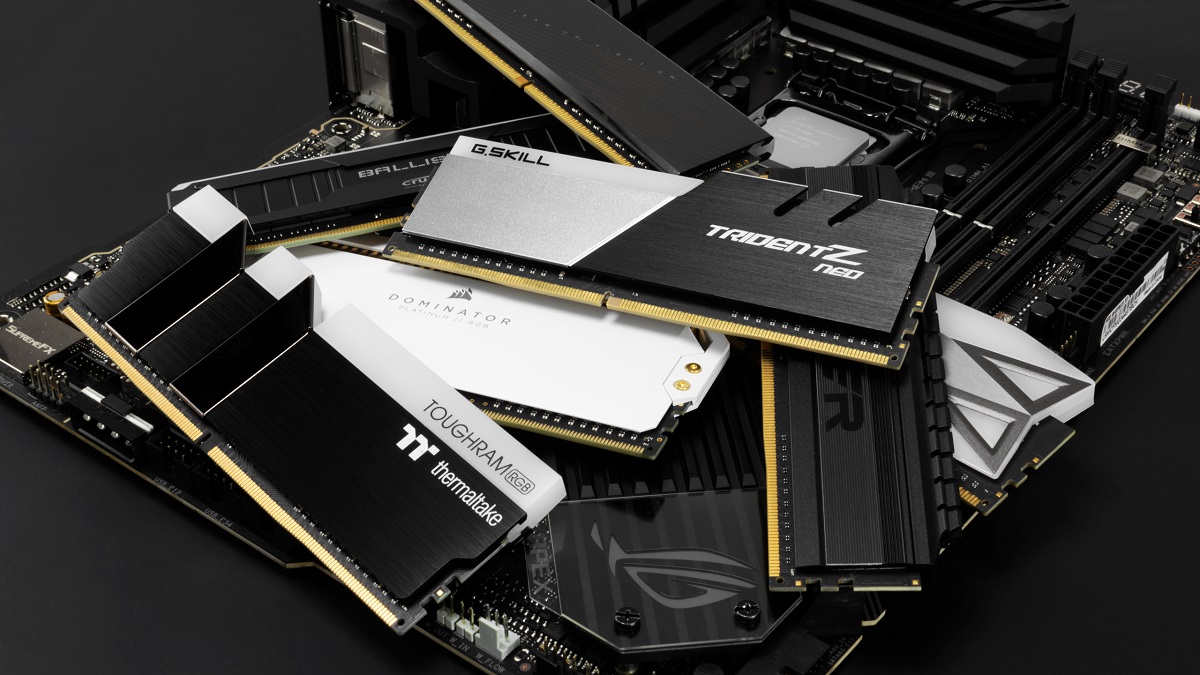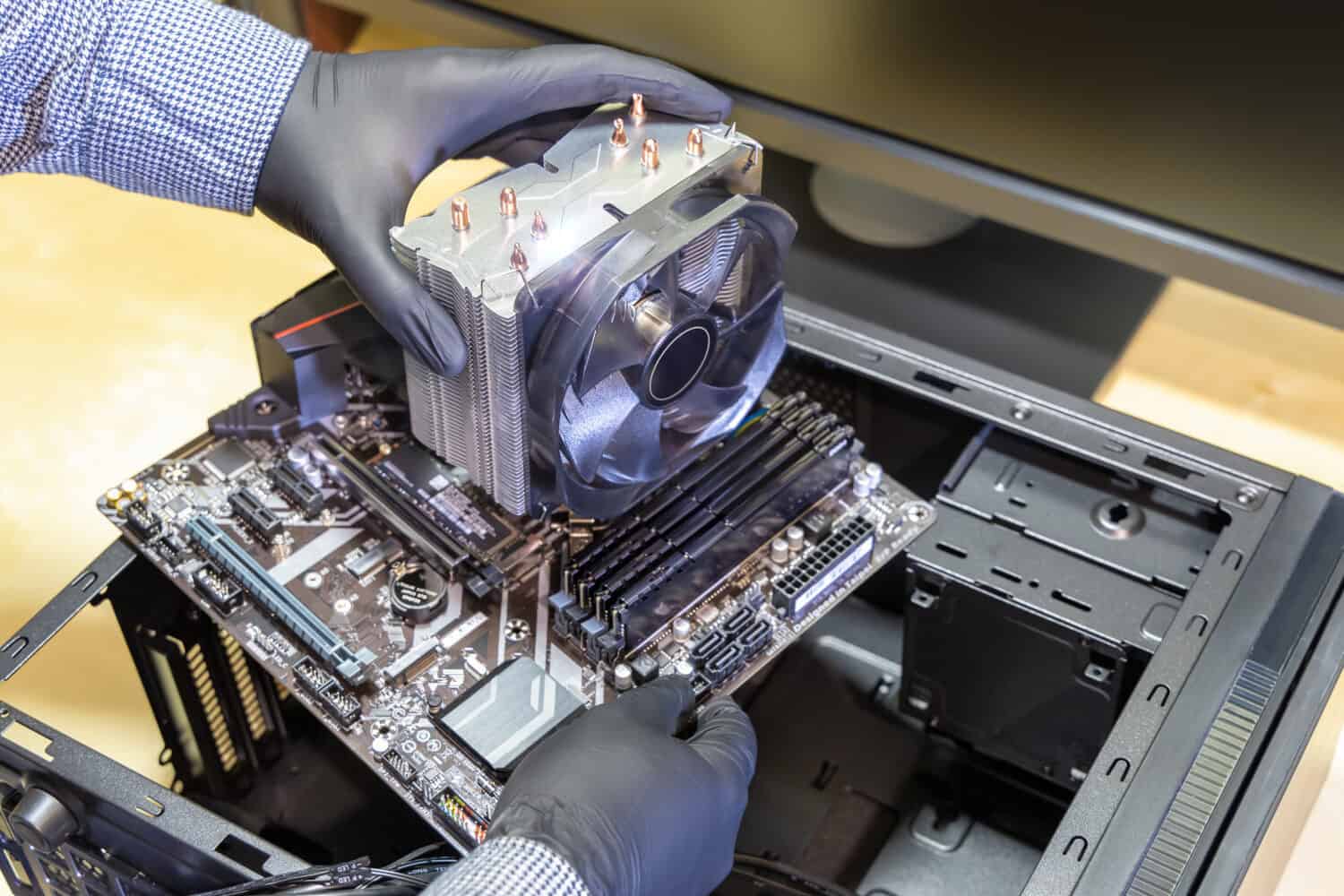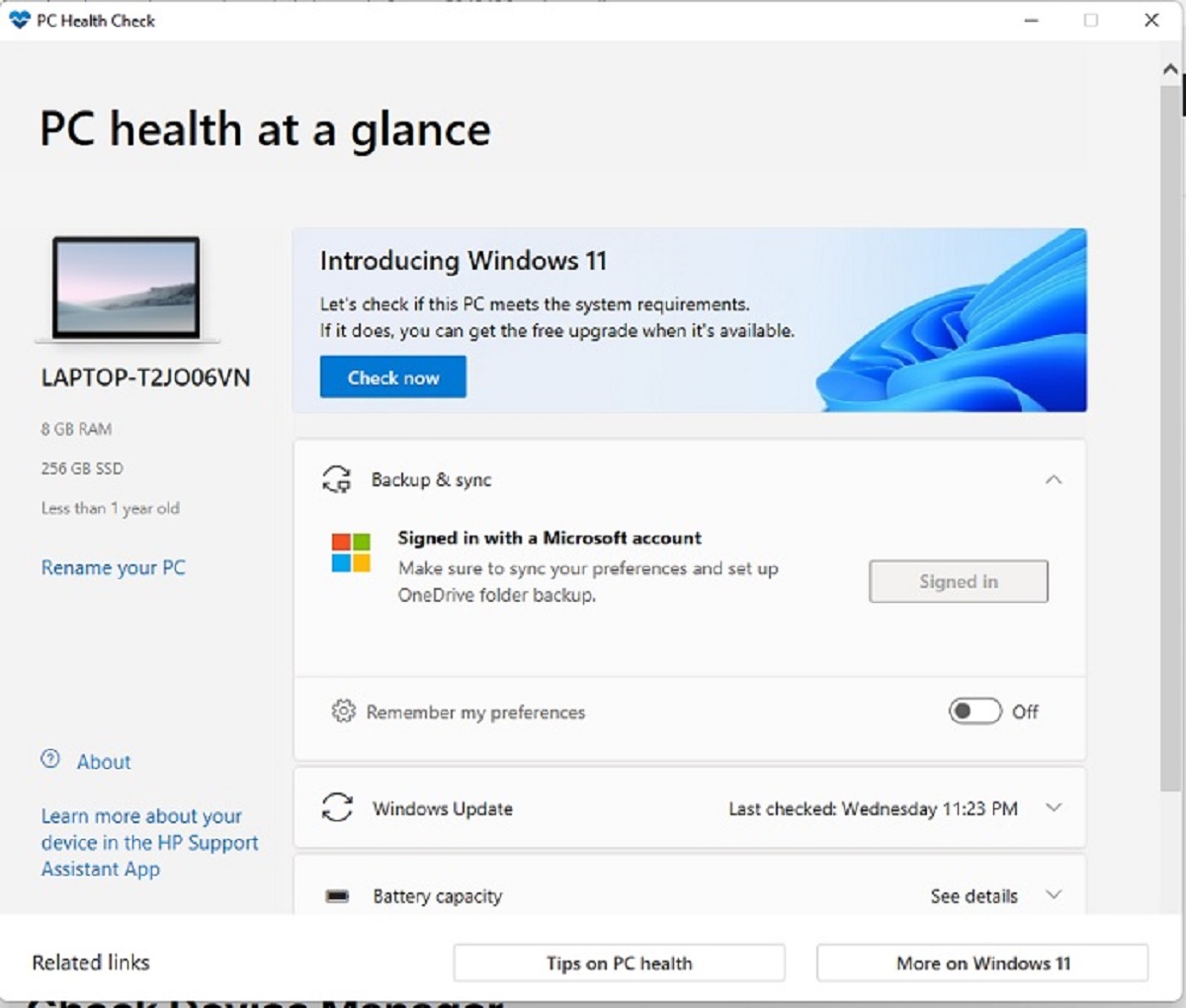Introduction
Have you ever experienced the frustration of your PC crashing repeatedly while you’re in the middle of playing games? It can be incredibly frustrating, interrupting your gaming experience and potentially causing you to lose progress in the game. But why does this happen? Is there a solution to these constant crashes?
There can be several factors contributing to your PC crashing when you play games. It’s important to understand that gaming requires specific hardware and software compatibility to ensure smooth gameplay. In this article, we will explore some of the most common reasons behind PC crashes during gaming and provide insights into how to resolve these issues.
We will discuss hardware requirements to run games smoothly, the importance of software compatibility, and how overheating can lead to crashes. We will also outline how outdated drivers, insufficient memory, graphics card issues, corrupted game files, viruses or malware, and inadequate power supply can contribute to game crashes. By exploring these possible causes, you will be better equipped to troubleshoot and resolve the issue.
While it is frustrating to experience PC crashes while playing games, understanding the underlying causes can help you find solutions and prevent future crashes. So, let’s dive into the details and explore each of these factors one by one to gain a clearer understanding of why your PC keeps crashing during gaming sessions.
Hardware Requirements
One of the primary reasons your PC may crash during gaming is because it does not meet the necessary hardware requirements to run the game smoothly. Games often have specific minimum and recommended hardware specifications that must be met for optimal performance.
If your PC falls short of these requirements, it may struggle to handle the demanding graphics, processing power, or memory usage of the game, resulting in crashes. Insufficient RAM, an outdated processor, or an inadequate graphics card can all contribute to this issue.
To avoid crashes due to hardware limitations, it’s essential to check the system requirements of the game you’re playing and compare them to your PC’s specifications. If there is a significant disparity, you may need to consider upgrading your hardware to meet the game’s requirements.
Upgrading hardware can involve increasing the amount of RAM, upgrading your processor, or investing in a more powerful graphics card. However, it’s crucial to note that upgrading hardware can be expensive. Before making any upgrades, carefully consider your budget and whether it’s worth the investment for the games you play.
In some cases, PC crashes during gaming may occur even if you meet the recommended hardware specifications. This could be due to other factors discussed in subsequent sections. However, ensuring your PC meets the minimum requirements for the game is a critical first step in troubleshooting and preventing crashes.
If you’re unsure about whether your PC meets the necessary hardware requirements, you can use software tools or consult with a computer technician to assess your system’s capabilities. Taking this step will help you determine if upgrading your hardware is necessary to eliminate the crashes and enjoy a smoother gaming experience.
Software Compatibility
Software compatibility is another crucial factor that can cause your PC to crash while playing games. Games rely on the operating system and other software components to function properly. If there are compatibility issues between the game and your PC’s software, crashes can occur.
One common compatibility issue arises when your operating system is outdated or not supported by the game. Developers regularly release updates and patches to ensure compatibility with the latest operating systems. If you’re using an older version of the operating system, it may not have the necessary components or updates required for smooth gameplay. As a result, your PC might crash when attempting to run the game.
It’s important to keep your operating system up to date and install any necessary updates or service packs. This ensures that your PC has the latest software components and improvements necessary for optimal gaming performance.
In addition to the operating system, other software components such as drivers and runtime libraries can also impact game compatibility. Outdated or incompatible graphics card drivers, for example, can lead to crashes when the game tries to interact with the graphics hardware. Similarly, missing or outdated runtime libraries, such as DirectX or Visual C++ Redistributables, can cause instability during gameplay.
To address software compatibility issues, check for updates for your graphics card drivers and install the latest versions. You can usually find driver updates on the manufacturer’s website or through specialized software. Additionally, ensure that you have the necessary runtime libraries installed by downloading and installing them from trusted sources.
Sometimes, compatibility issues can arise due to conflicting software running in the background. Anti-virus programs, firewalls, or other system utilities may interfere with game processes and cause crashes. Consider temporarily disabling or adjusting the settings of these programs to see if it resolves the crash issues.
By ensuring software compatibility and keeping your operating system, drivers, and runtime libraries updated, you can minimize the risk of crashes during gameplay and enjoy a smoother gaming experience.
Overheating
Overheating is a common cause of PC crashes while playing games. When you play graphic-intensive games, such as AAA titles, it puts a significant load on your PC’s hardware components, generating heat. If your system is unable to dissipate this heat effectively, it can lead to overheating, causing instability and crashes.
There are several reasons why your PC may be overheating during gaming sessions. One possibility is that the fans and cooling system of your PC are not functioning optimally. Dust accumulation can restrict airflow, preventing proper cooling. It is essential to regularly clean your PC’s internal components, including fans, heat sinks, and vents, to ensure unrestricted airflow and prevent overheating.
Another common reason for overheating is inadequate thermal paste or a poorly seated CPU cooler. Thermal paste helps transfer heat between the CPU and the cooler. If the thermal paste is old or not applied properly, it can lead to inefficient heat transfer and increased temperatures. Similarly, if the CPU cooler is not securely installed or is not making proper contact with the CPU, it can result in inadequate cooling.
Ensure that your PC’s cooling system is functioning correctly by monitoring the temperatures during gaming sessions. There are various software tools available that can provide real-time temperature monitoring. If you notice temperatures exceeding recommended levels, consider taking the following steps:
- Check and clean your PC’s fans, heat sinks, and vents to improve airflow.
- Replace the thermal paste on your CPU if it is old or dried out.
- Re-seat the CPU cooler, ensuring proper contact with the CPU.
- Consider investing in additional cooling solutions, such as aftermarket CPU coolers or case fans, to improve heat dissipation.
In extreme cases, if your PC continues to overheat despite these measures, you may need to consult a professional technician to diagnose and address any underlying hardware issues.
By ensuring proper cooling and temperature management, you can mitigate the risk of PC crashes due to overheating and enjoy uninterrupted gaming sessions.
Outdated Drivers
Outdated drivers can be a significant cause of PC crashes during gaming. Drivers act as bridges between the hardware components of your PC and the operating system, allowing them to communicate effectively. If your drivers are outdated or incompatible, it can lead to instability and crashes.
Graphics card drivers, in particular, play a crucial role in gaming performance. Game developers often release updates that optimize performance for specific graphics cards. If you’re using outdated graphics card drivers, it may result in crashes or poor game performance.
To address outdated drivers, you should regularly check for updates from your hardware manufacturers, including your graphics card, sound card, and motherboard. Most manufacturers provide software that can automatically detect and install the latest driver updates. Alternatively, you can visit the manufacturer’s website and manually download the driver updates.
Before installing a driver update, it’s essential to uninstall the previous version to avoid conflicts. Many driver installer software offer the option to perform a clean installation, removing the old drivers before installing the new ones. This ensures a fresh installation without any remnants of the previous drivers.
In addition to graphics card drivers, it’s also important to keep other drivers, such as network card or audio drivers, up to date. These updates often address compatibility issues and improve overall system stability.
While updating drivers can help resolve crashes, it’s worth noting that occasionally, a driver update may introduce new compatibility issues. If you experience crashes shortly after updating a driver, you can try rolling back to the previous version to see if it resolves the issue.
Regularly updating your drivers helps ensure compatibility with the latest games, improves stability, and can prevent crashes during gameplay. Make it a habit to check for driver updates regularly and keep your PC’s drivers up to date for a smoother gaming experience.
Insufficient Memory
Insufficient memory, both RAM and virtual memory, can contribute to PC crashes while playing games. When you run a game, it requires a certain amount of memory to store and process the game files, textures, and other data. If your PC does not have enough available memory, it can lead to crashes and instability.
RAM, or Random Access Memory, is a critical component that temporarily stores data and instructions for the CPU to access quickly. If your PC has inadequate RAM, it may struggle to handle the demands of the game, resulting in crashes. It’s essential to have enough RAM to meet the minimum requirements of the game you’re playing.
In addition to physical RAM, virtual memory also plays a role in gaming performance. Virtual memory is a portion of the hard drive or SSD that is used as an extension of physical memory when RAM capacity is exceeded. If your virtual memory is set too low or your hard drive/SSD is nearly full, it can limit the amount of virtual memory available for the game, leading to crashes.
To address insufficient memory issues, there are a few steps you can take:
- Upgrade your RAM: If your PC has less RAM than required by the game, consider upgrading to a higher capacity. More RAM will allow your PC to handle the game’s memory requirements more effectively.
- Optimize virtual memory: Increase the size of the virtual memory (also known as page file) on your system. This can help compensate for the lack of physical RAM. Consult online guides or a computer technician for specific instructions on adjusting virtual memory settings for your operating system.
- Close unnecessary programs: Before launching a game, make sure to close any unnecessary background applications. This frees up memory and resources for the game to use.
- Clear disk space: If your hard drive or SSD is nearing its full capacity, consider deleting unused files or moving them to an external storage device. This will create more room for virtual memory and improve overall system performance.
By addressing insufficient memory issues, you can reduce the risk of crashes caused by memory overload and enjoy a more stable gaming experience.
Graphics Card Issues
Graphics card problems can be a significant factor behind PC crashes during gaming. The graphics card is responsible for rendering the visuals and handling the graphical processing required by games. If there are issues with your graphics card, it can result in crashes, artifacts, screen freezes, or even system restarts.
One common graphics card issue is outdated or incompatible drivers, which we discussed in a previous section. However, there can be other hardware-related problems with your graphics card as well.
One possibility is that your graphics card may be overheating, similar to the overall overheating issue discussed earlier. Some graphics cards have their own cooling systems, such as fans or heat sinks, which can become clogged with dust or malfunction over time. This can hinder the cooling and lead to crashes. Ensure that your graphics card is properly cooled, and clean any dust or debris that may have accumulated on it.
Faulty or inadequate power supply can also contribute to graphics card-related crashes. If your graphics card is not receiving sufficient power, it may not be able to handle the demands of the game, resulting in crashes. Make sure that your power supply is rated for your graphics card’s requirements and that all necessary power connectors are properly connected.
Graphics card overclocking can also lead to stability issues. Overclocking is the process of increasing the clock speeds of the graphics card to achieve better performance. However, pushing the card beyond its recommended limits can cause crashes and other problems. If you have overclocked your graphics card, consider returning it to its default settings to see if it resolves the crashes.
If you’re experiencing graphics card issues, it may be worth running diagnostics or stress tests specifically designed for graphics cards to identify any potential hardware issues. Many graphics card manufacturers provide diagnostic tools that can help troubleshoot issues and test the card’s stability.
Ultimately, if you’re still experiencing crashes despite addressing the above issues, the problem could be a faulty graphics card itself. In such cases, seeking professional assistance or contacting the manufacturer’s support would be recommended.
By addressing graphics card issues such as outdated drivers, cooling, power supply, and overclocking, you can reduce the risk of crashes during gaming and enhance the overall stability of your system.
Corrupted Game Files
Corrupted game files can be a significant culprit behind PC crashes while playing games. When game files are damaged or incomplete, it can lead to instability and crashes during gameplay.
There are several reasons why game files may become corrupted. One possibility is a faulty download or installation process. If there were interruptions or errors during the download or installation, it can result in incomplete or corrupted files. It’s important to ensure a stable and reliable internet connection during downloads and to verify the integrity of the files after installation, if the game provides such an option.
Another reason for corrupted game files can be issues with the storage device where the game is installed. Hard drives or SSDs can develop bad sectors over time, causing data corruption. If your game files are stored in a sector with errors, it can lead to crashes. Running disk error checking tools or scanning your storage device for errors can help identify and resolve these issues.
Third-party software, such as antivirus or system optimization tools, can sometimes interfere with game files and cause corruption. These programs might flag game files as false positives or mistakenly remove or modify them. It’s crucial to whitelist game directories or temporarily disable such software to rule out any conflicts.
To address corrupted game files, there are a few steps you can take:
- Verify file integrity: Many game platforms, such as Steam, have built-in features to verify the integrity of game files. This process will identify any corrupt or missing files and automatically replace them.
- Reinstall the game: If file verification doesn’t solve the issue, consider uninstalling and reinstalling the game. This will ensure a fresh installation with clean files.
- Check the storage device: Run disk error checking tools or perform a scan on your storage device to identify and fix any errors or bad sectors that may be affecting game files.
- Disable interfering software: Temporarily disable antivirus or system optimization software to rule out any conflicts with the game files.
By addressing corrupted game files, you can reduce crashes and ensure a more stable gaming experience.
Viruses or Malware
Viruses or malware can pose a significant threat to the stability of your PC and can also be a cause of crashes while playing games. Malicious software can disrupt the normal functioning of your system, including game processes, causing crashes and other issues.
Viruses and malware can enter your system through various means, such as malicious downloads, email attachments, or unsafe websites. Once inside your PC, they can interfere with game files, system processes, or even steal sensitive information in the background.
To protect your PC from viruses and malware, it’s important to have a robust and up-to-date antivirus software installed. Antivirus programs can detect and remove malicious software before they cause harm to your system. Keep your antivirus program’s virus definitions and software up to date to effectively combat the latest threats.
In addition to having antivirus software, it’s vital to practice safe browsing and downloading habits. Be cautious when downloading files from unfamiliar sources, and avoid clicking on suspicious links or email attachments. Use reputable websites and verify the authenticity of the downloads before installing them.
If you suspect that your PC might be infected with viruses or malware, perform a full system scan with your antivirus software. It will identify and quarantine any malicious files or programs it detects. Take immediate action to remove these threats and ensure that your antivirus software is set to perform regular scans to prevent future infections.
Furthermore, some viruses or malware specifically target gaming processes and files, leading to crashes during gameplay. In such cases, running specialized malware removal tools or consulting with a professional technician may be necessary.
By maintaining a strong antivirus software, practicing safe browsing habits, and regularly scanning your system for viruses and malware, you can minimize the risk of crashes caused by malicious software and enjoy a safer gaming experience.
Inadequate Power Supply
Inadequate power supply can be a significant cause of PC crashes while playing games. Gaming requires a significant amount of power, especially for high-performance components such as the CPU and graphics card. If your PC’s power supply is not capable of delivering sufficient power, it can lead to system instability and crashes.
When your PC requires more power than what the power supply can handle, it can result in sudden shutdowns, freezes, or reboots. This occurs as a protective measure to prevent damage to the components due to inadequate power supply.
To address inadequate power supply issues, there are a few steps you can take:
- Check power supply capacity: Ensure that your PC’s power supply has a sufficient wattage rating to handle the power demands of your components, including the graphics card. Graphics cards, in particular, can consume a significant amount of power, so it’s important to consider their requirements when choosing a power supply.
- Replace the power supply unit: If your power supply is not providing sufficient power, you may need to replace it with a higher wattage unit. It’s crucial to choose a power supply from a reputable manufacturer to ensure its reliability and stability.
- Consider power efficiency: Power supplies with higher efficiency ratings, such as 80 Plus certified power supplies, convert more of the input power into usable output, minimizing wasted energy as heat. These power supplies can provide more stable power to your components and reduce the risk of crashes.
- Check power connections: Verify that all power cables are properly connected to the components, including the motherboard, graphics card, and any additional devices. Loose or improperly connected cables can result in power fluctuations and crashes.
- Consult a professional: If you’re unsure about your power supply or need assistance in selecting an appropriate one for your PC, consider consulting with a professional technician who can evaluate your system’s power requirements and recommend the right power supply.
By ensuring an adequate power supply for your PC, you can prevent crashes caused by insufficient power delivery. It’s important to select a reliable power supply and regularly monitor the power demands of your components to avoid any stability issues during gaming.
Conclusion
Experiencing PC crashes while playing games can be incredibly frustrating and disrupt your gaming experience. However, understanding the potential causes behind these crashes can empower you to troubleshoot and resolve the issues effectively.
In this article, we explored various factors that can contribute to PC crashes during gaming. We discussed the importance of meeting hardware requirements and ensuring software compatibility. We also highlighted how overheating, outdated drivers, insufficient memory, graphics card issues, corrupted game files, viruses or malware, and inadequate power supply can lead to crashes.
To address these issues, we provided several suggestions and recommendations. These include upgrading hardware, updating drivers, cleaning your PC to improve cooling, checking for software conflicts, verifying game files, protecting against viruses and malware, and ensuring an adequate power supply.
It’s important to note that PCs can vary in terms of hardware and software configurations, and the specific solutions required may differ from case to case. Troubleshooting PC crashes may involve a combination of these suggestions or potentially seeking professional assistance.
By implementing the appropriate measures to address the identified factors, you can significantly reduce the likelihood of PC crashes and enjoy a stable and uninterrupted gaming experience.
Remember, maintaining regular updates, practicing good hardware hygiene, practicing safe browsing habits, and employing reliable antivirus software are fundamental for a healthy and stable gaming experience. By keeping your PC in optimal condition, you can minimize crashes and immerse yourself in the enjoyment of gaming.
Happy gaming!







